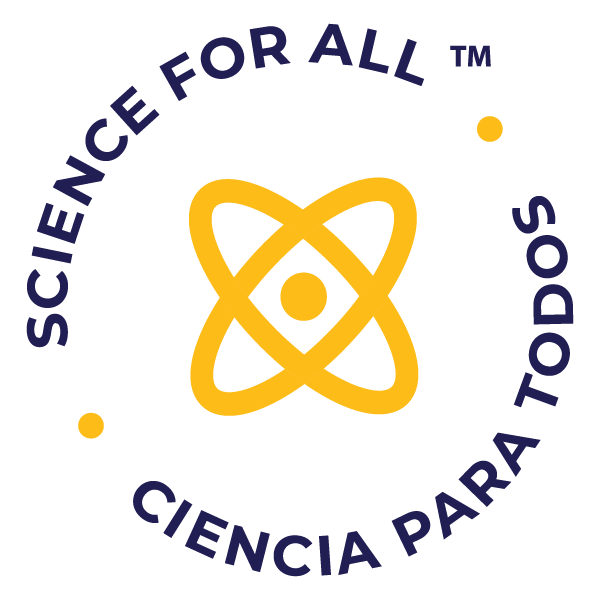‘Science for All:’ The definition and purpose
By CRYSTAL HARDEN, EdD
CHAPEL HILL, NC (April 3, 2024) —Several years ago, Morehead created the tagline “Science for All’ in support of and solidarity with its commitment to inclusion. This tagline is used in many ways and forms, including branding, marketing, advertising, and programming. You will see this tagline on our social media, print ads, staff uniforms, and North Carolina Science Festival branding throughout this month of April.
As an organization, we are very pleased with its visibility and its meaning. It is the hope of Morehead that when you hear “Science for All,” you think of scientific literacy and learning through a lens of inclusive perspectives and backgrounds with an end goal of equity in STEM. Morehead is a statewide organization serving all 100 counties of North Carolina from Murphy to Manteo and from Surry to Shallotte. Across all 100 counties, citizens from all walks of life exist. As a department of the University of North Carolina at Chapel Hill, the flagship university of North Carolina, Morehead strives to create a scientific space of innovation and creativity that is safe and comfortable for all.
Science and STEM spaces have not always been these types of safe and comfortable spaces for its learners and participants. Morehead walks in the purpose that Science for All is action and a movement to be a place of belonging and well-being for young and seasoned participants across not just North Carolina and our great nation but globally.
We understand that #ScienceForAll is not just a hashtag or tagline but a marathon of life deserving for all human beings.

Crystal Harden, EdD, is the director of program and inclusion initiatives at Morehead Planetarium and Science Center and an adjunct professor at the UNC School of Education.
